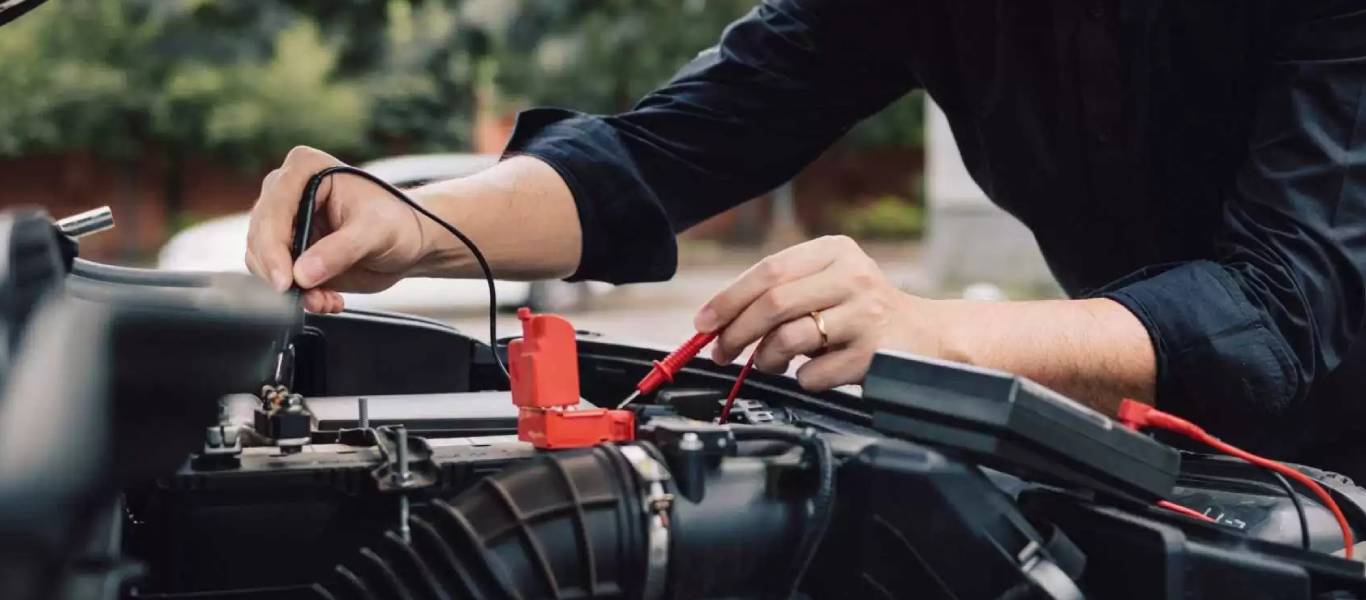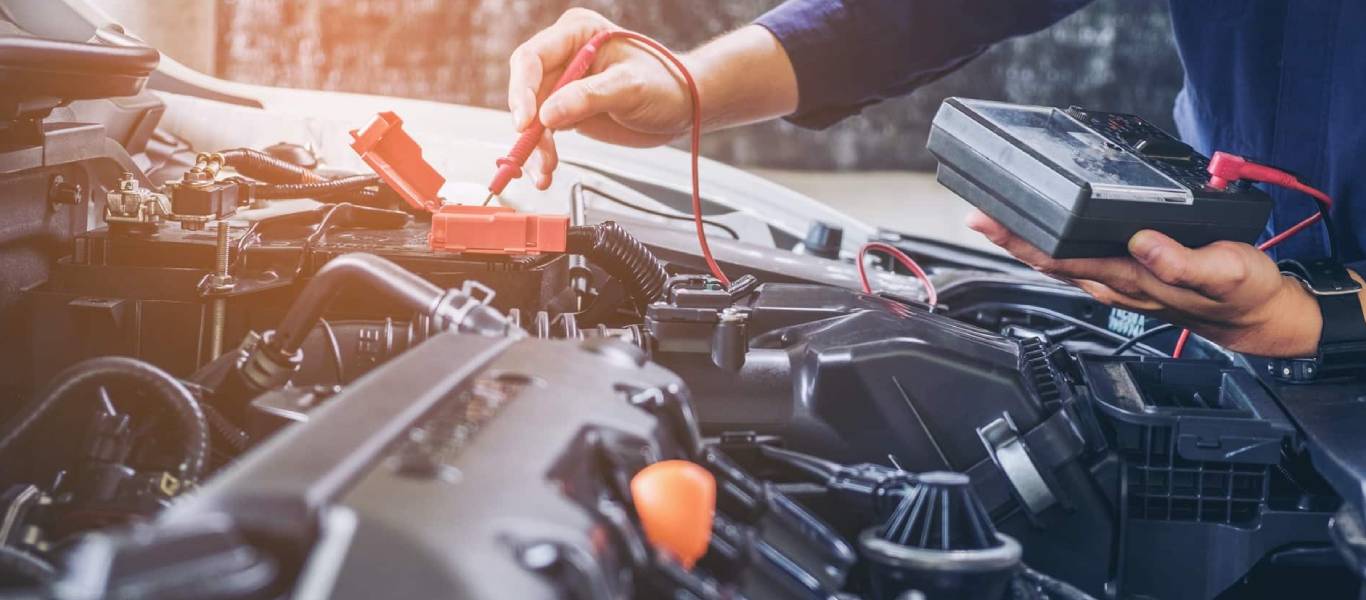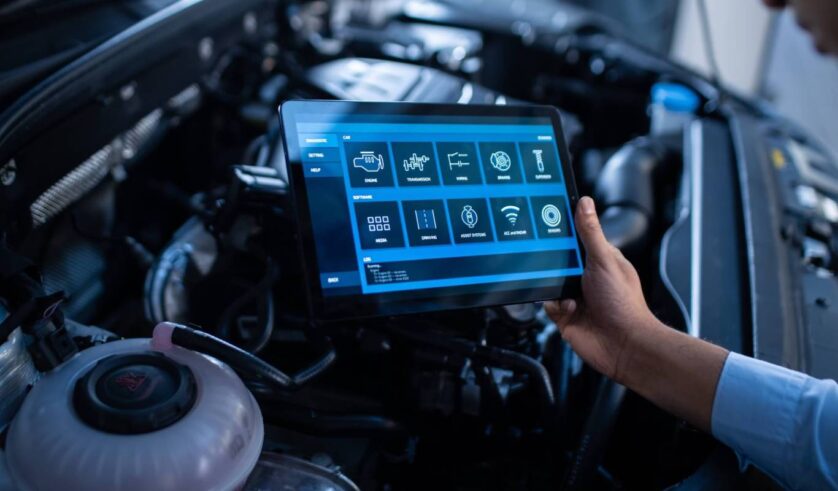A car provides incredible utility, but like any other machine, it can suffer from one or more problems. You can resolve some of these problems yourself, while others may require the expertise of a technician. Let us look at some of the most common car problems.
Flat Tire
A flat tire refers to a tire that has lost air pressure and can no longer maintain its proper inflation level. When a tire loses air pressure, it can become visibly deflated or appear noticeably flatter than it should be. This can happen because of punctures, leaks, or damage to the tire. A flat tire can significantly affect the vehicle’s handling, stability, and overall safety, requiring immediate attention and either repair or replacement.
Dead Battery
A dead battery is a battery that has lost its charge and cannot provide the necessary electrical power to start a vehicle or operate its electrical components. In automobiles, the battery is responsible for supplying the initial power needed to start the engine and for powering various electrical systems when the engine is not running or when there is a higher demand for electricity than the alternator can supply. When the battery is dead, your car will not start, and no electrical components will work. You can use another battery to Jump-start the dead battery, but you may need to replace your battery if this doesn’t work.
Engine Overheating
When the engine overheats, several signs may indicate the problem, such as:
- The temperature gauge on the dashboard shows an abnormally high reading.
- Steam or smoke may be observed coming from the engine compartment.
- The engine may emit a strong, unpleasant odour.
- The vehicle may experience a loss of power or performance.
If the engine overheats, it is essential to address the issue promptly to prevent potential damage to the engine. Safely pulling over to a safe location, switching off the engine, and allowing it to cool down are initial steps. Once the engine has cooled, checking the coolant level, inspecting for coolant leaks, ensuring proper airflow through the radiator, and seeking professional assistance are recommended actions to resolve the engine overheating issue.

Brake Issues
Brake issues refer to problems or malfunctions related to a vehicle’s braking system. The braking system is crucial for the safe operation of a vehicle, as it allows the driver to stop or slow down the vehicle when necessary. Here are some common brake issues:
- Squeaking or squealing brakes
- Grinding brakes
- Soft or spongy brake pedal
- Brake pedal pulsation
- Reduced braking power
- Brake fluid leaks
- ABS (Anti-lock Braking System) issues:
Check Engine Light Illuminated
When the check engine light illuminates, the engine management system has detected a problem or a fault within the vehicle’s components. Here are some common reasons for the check engine light to come on:
- Faulty oxygen sensor
- Loose or damaged gas cap
- Malfunctioning catalytic converter
- Mass airflow sensor issues
- Faulty ignition coils or spark plugs
- Emission control system issues
- Malfunctioning sensors
Starter Motor Failure
Starter motor failure refers to a situation where the starter motor in a vehicle malfunction or stops working altogether.
Some of the signs of starter motor failure include the following:
- Engine Not Cranking: You hear a clicking sound or no sound at all when you start the motor, indicating that it is not turning or engaging the engine.
- Grinding Noise: If the starter motor’s gear is not properly engaging with the engine’s flywheel, you may hear a grinding noise when attempting to start the vehicle. This can indicate a problem with the starter motor’s drive gear or the flywheel.
- Frequent Need for Jump-Starts: If you frequently need to jump-start your vehicle to get it running, it could be a sign of a faulty starter motor. However, it’s essential to rule out other potential issues, such as a weak battery or a charging system problem.
- Smoke or Burning Smell: In some cases, a failed starter motor may emit smoke or produce a burning smell due to overheating caused by excessive current draw or internal component failure.

Alternator Problems
Alternator problems refer to malfunctions or failures in the vehicle’s alternator, which generates electrical power and recharges the battery while the engine runs. Here are some signs and symptoms of alternator problems:
- Dim or Flickering Lights: One of the common signs of alternator issues is the dimming or flickering of headlights, interior lights, or dashboard lights. This usually happens if the alternator is not supplying the right power for running the electrical system.
- Warning Light: If the alternator warning light or the dashboard’s battery light illuminates, it may indicate a problem with your charging system.
- Battery Issues: Faulty alternators can lead to a weak or drained battery. If the battery continually loses charge or requires frequent jump-starts, it could indicate alternator problems. However, it’s essential to rule out other potential causes, such as a defective battery or parasitic electrical drain.
- Electrical Malfunctions: Alternator issues can cause various electrical malfunctions in the vehicle. These may include power windows or locks not working properly, malfunctioning radio or infotainment system, or erratic operation of the dashboard gauges.
- Strange Noises: A weak alternator often produces unusual noises, such as squealing, grinding, or whining. These noises may indicate worn-out bearings or other internal component problems.
- Smell of Burning Rubber: A failing alternator can sometimes emit a burning rubber smell due to a worn-out belt or a malfunctioning pulley system.
Transmission Issues
Transmission issues refer to problems or malfunctions in a vehicle’s transmission system. The transmission works by transferring power from your car’s engine to its wheels. Some of the transmission issues include:
- Shifting Problems: Difficulty shifting gears or experiencing harsh, delayed, or erratic shifting can indicate transmission problems. This may include slipping out of gear, hesitation when shifting, or the vehicle getting stuck in a certain gear.
- Transmission Slipping: If you notice a loss of power or the engine revving without a corresponding increase in speed, it may indicate the transmission is slipping. Worn-out clutch plates, low transmission fluid, or other internal issues can cause this.
- Leaking Transmission Fluid: Transmission fluid is crucial for proper transmission operation. Observing red or brown fluid leaks under your vehicle may suggest a transmission fluid leak. Low fluid levels can lead to poor transmission performance or even damage.
- Transmission Overheating: Overheating can occur due to a malfunctioning cooling system, excessive towing or heavy loads, or continuous hard driving. Symptoms may include a burning smell, warning lights, or erratic transmission behaviour.
- Unusual Noises: Grinding, clunking, or whining noises from the transmission may indicate worm-out components or internal damage.
- Transmission Warning Light: If the transmission warning light illuminates on the dashboard, it indicates a problem detected by the vehicle’s onboard diagnostics system. It is advisable to have the vehicle inspected to determine the specific issue.
- Delayed Engagement or Slipping in Reverse: If there is a delay or hesitation when shifting into reverse gear or if the vehicle slips out of reverse unexpectedly, it may suggest transmission problems.

Other Car Problems
- Faulty ignition coil
- Fuel system problems (e.g., clogged fuel injectors)
- Electrical system malfunctions (e.g., faulty wiring)
- Suspension and steering issues (e.g., alignment problems)
- Failed catalytic converter
- Ignition switch failure
- Leaking fluids (e.g., oil, coolant)
- A broken or damaged windshield
- Malfunctioning or non-responsive sensors (e.g., ABS, airbag)
- Faulty spark plugs
- A/C or heating system malfunction
- Exhaust system problems (e.g., leaks, muffler issues)
- Problems with power windows or locks
- Faulty belts (e.g., serpentine belt, timing belt)


